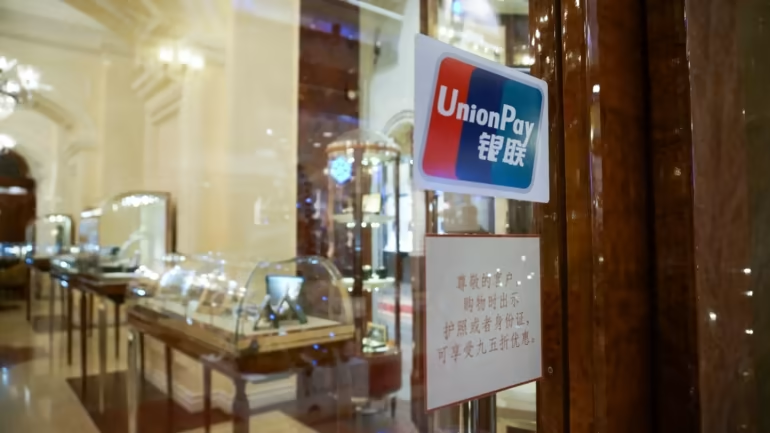A new column for Nikkei Asia Review looking at the China-Russia relationship. Was initially drafted ahead of Wang Yi’s visit, but then pivoted a bit to reflect it, though nothing during the visit particularly surprised. Doubtless this will be a major talking point this year.
China’s embrace of Russia is mostly for show
Rhetoric about close ties is not translating into cooperation on tangible goals

Raffaello Pantucci is a senior fellow at the S. Rajaratnam School of International Studies in Singapore and author of “Sinostan: China’s Inadvertent Empire.”
This week’s visit to Moscow by Wang Yi, China’s top diplomat, just ahead of the anniversary of Russia’s invasion of Ukraine, highlights the closeness of the two powers.
But grand rhetoric about the strength the relationship and revived U.S. assertions that Beijing is considering upgrading the quality of its military support to Moscow are overshadowing the day-to-day reality that China and Russia are on very different tracks.
Beijing has been coy about the invitation extended by Russian President Vladimir Putin in a year-end call with Xi Jinping for the Chinese leader to pay a visit this spring, although it was reiterated by the Russian Ministry of Foreign Affairs in late January.
While Beijing may not want to appear to commit yet as to when Xi will visit Moscow, he and Putin are due to meet midyear at a Shanghai Cooperation Organization leaders’ summit to be held in India and again in Durban, South Africa, at a BRICS summit in August.
In the meantime, China has continued to make it clear that its relationship with Russia is important. Visiting Moscow earlier this month, Vice Foreign Minister Ma Zhaoxu said, “China is willing to work with Russia to implement the important consensus reached by the two heads of state and to promote new progress in bilateral relations in the new year.”
Doubtlessly, throughout the year we will continue to hear affirmations of the two nations’ friendship. This is likely to continue to be reflected in military exercises, which are increasingly held with other nations as well.
Chinese and Russian vessels are now engaged with South African counterparts in a large-scale, 10-day naval exercise off KwaZulu-Natal province that began on Friday.
Moscow and Beijing are happy to mutually antagonize others with these activities. Last December, Japanese Chief Cabinet Secretary Hirokazu Matsuno expressed “severe concerns” over frequent joint air force activities by Russia and China near Japanese airspace. The two have undertaken similar exercises regularly around South Korean airspace and conducted joint exercises with Iranian forces.
Yet if one digs deeper, there is little evidence of significant cooperation that might advance more tangible goals, despite U.S. Secretary of State Antony Blinken’s claims about Chinese support for Russia’s war effort.
For example, the growing volume of Russian troops and mercenaries in Africa seems to be doing little to help protect the many Chinese businessmen who keep getting kidnapped by militant groups. In Tajikistan, both Moscow and Beijing have military posts near the Afghan frontier but they do not work together and the Russians reportedly have complained that the Chinese there do not even communicate with them.
At the same time, Russian counterintelligence continues to detain senior scientists for alleged selling sensitive technology to China. Last June, for example, physicist Dmitry Kolker was detained on charges of suspected treason involving collaboration with China.
A similar pattern can be found at an economic level.
Both sides champion the fact that bilateral trade rose 29.3% last year to reach $190 billion. The Russian Ministry of Foreign Affairs said in January that Moscow is looking forward this year to finding ways of harmonizing China’s Belt and Road Initiative with the Russian-led Eurasian Economic Union. Russian central bankers are proud too of their shift away from Western currencies to the yuan.
Yet the reality is that much of the growth in trade volumes in 2022 came in crude oil and coal sales where China took advantage of discounted supplies from Russia, which has been faced with a shrinking pool of customers.
Chinese companies continue to express concern about how they can keep up purchases of Russian energy and to seek new ways to protect themselves from sanctions while also worrying about insurance coverage. And while there is growing evidence that Chinese companies are still selling high technology products like microchips to Moscow, the companies doing this are often either hiding their tracks or have publicly withdrawn from the Russia.
Lenovo and Xiaomi, which both were major players in the Russian tech market before the war, quietly scaled back operations dramatically last year. Huawei Technologies moved many staff to Kazakhstan and Uzbekistan while closing some units. And Russian consumers seeking to use UnionPay cards to replace the Visa, American Express or Mastercard credit cards that no longer work increasingly find the Chinese cards do not function either.

Of course, this does not mean that Chinese products are disappearing from Russia. In reality, Chinese products are increasingly present but often arrive indirectly which can raise costs for consumers. The trade in non-sanctioned goods is likely to increase with the opening of two new bridges across the Amur River.
The problem for Russia is that its dependence on China keeps getting deeper. For now, China may be providing a lifeline, but there is high risk to this position as well.
In trading the dollar for the yuan, the Russian central bank is binding itself to a currency which is tightly controlled by the Chinese Communist Party and is answerable to its needs. Opening Russia’s markets to greater Chinese penetration is only going to emasculate the domestic economy and make it harder for local competitors to survive.
For all the lofty rhetoric, there continues to be a disparity in the China-Russia relationship. Despite frequent demonstrations of affection, there are distinct limits to this partnership.
